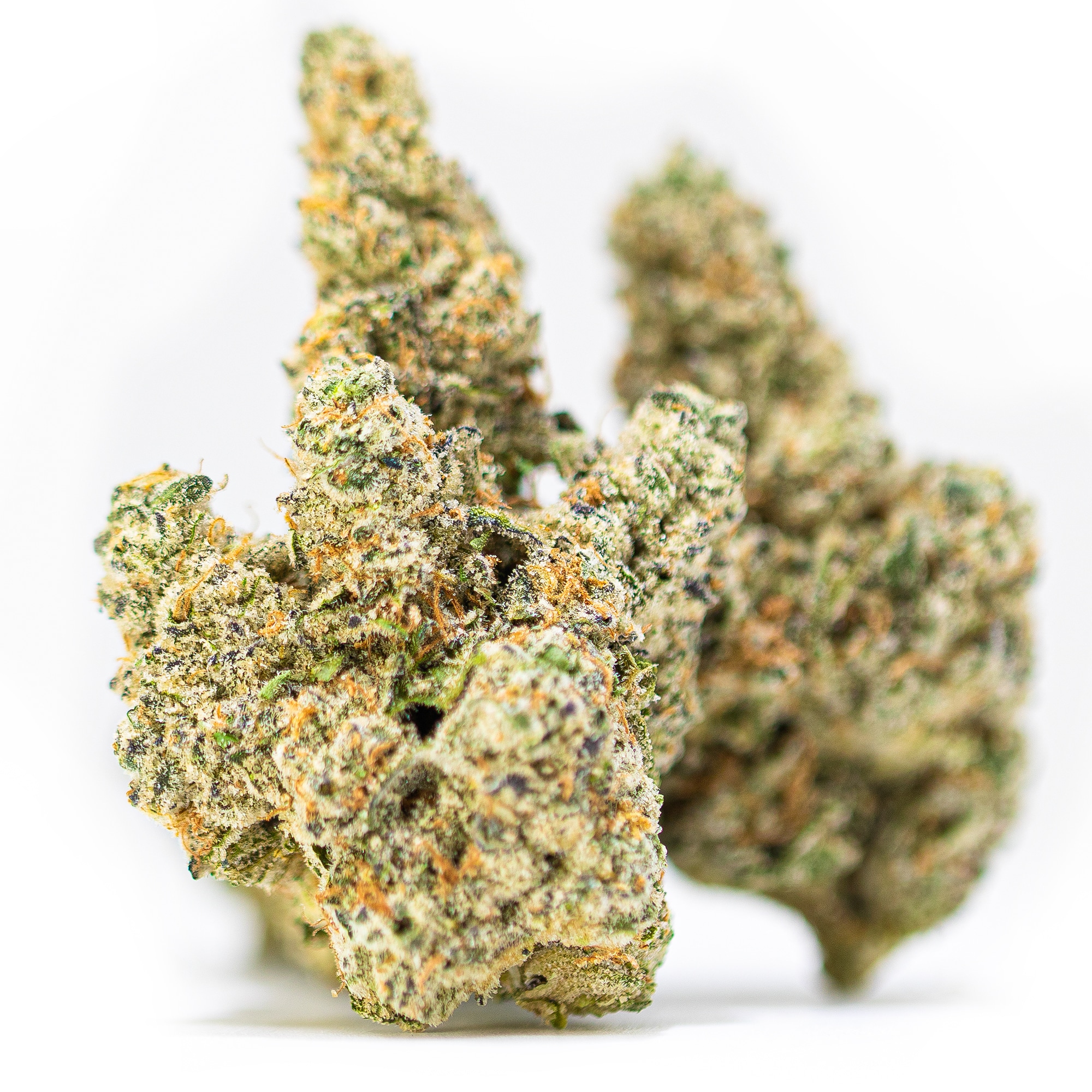
As we continue to experience a surge in new laws and emerging research supporting the use of CBD, more Americans are turning to this special compound to abate ailments, such as mental and physical stress. And an overwhelming number of CBD users are reporting positive results.
But even with the growing knowledge surrounding CBD products, consumers are still faced with questions when shopping for the right CBD item.
One of the most important questions: “what’s the difference between full-spectrum CBD, and CBD isolate?”
And just as crucial: “what CBD product’s best for me?”
It’s our mission to help individuals feel better about where they put their money, so we’re answering these questions here.
First, let’s take just a second to see why CBD’s become so widely used.
Understanding CBD & Other Cannabinoids
So when we talk about CBD, we’re actually talking about just one beneficial component of the Cannabis sativa plant, and this component is known as a cannabinoid.
And here’s the thing: CBD is just one of the hundreds of cannabinoids found in hemp.
CBD gets most of the attention because it tends to be the most concentrated in hemp, and appears to do a lot of the work when we use hemp oil. But other cannabinoids in hemp include cannabigerol (CBG), cannabinol (CBN) and cannabicromene (CBC).
What makes cannabinoids so special?
It all has to do with their fascinating effect on the human body and mind.
You see, humans have a series of important receptors associated with our central and peripheral nervous system which play a huge role in managing balance through functions such as stress.
These receptors make up what’s known as the endocannabinoid system (ECS), and they use transmitters custom-made by our bodies, which are known as endocannabinoids.
And it’s been found that when cannabinoids enter our bodies, they behave almost exactly like endocannabinoids, and our ECS accepts them as such to boost balance.
And yes, THC is also a cannabinoid found in hemp, but it’s far less concentrated than in cannabis, and it’s certainly enough to get you high.
It’s important to understand cannabinoids not only to understand how CBD works, but they also help you distinguish full-spectrum CBD from CBD oil, aka CBD isolate.
So what’s the difference, anyway?
Full-Spectrum CBD Oil
When CBD experts and sellers talk about full-spectrum hemp or full-spectrum CBD, they’re talking about hemp extracts that have all of the cannabinoids naturally occurring in the plant. These extracts are suspended in a carrier oil, typically coconut or hempseed.
Full-spectrum hemp oil can be used as a product all its own, measured with a dropper, but it may also be made into capsules, gummies, and even topicals.
Full-spectrum hemp is preferred by many hemp users because it’s believed to promote a synergistic connection, and it may increase the oil’s overall effects. This synergy is known as the entourage effect, and it may also help improve the absorption of the CBD.
Furthermore, full-spectrum CBD products contain all of the other beneficial compounds from hemp, including terpenes and flavonoids, as well as essential vitamins and minerals, protein, fiber, and essential fatty acids.
As far as the cons of full-spectrum CBD, it has a rather acquired taste that not all individuals may enjoy. On top of that, full-spectrum products do not contain enough THC to get the user high, but it may show up on the most sensitive drug tests. So if that’s a concern for you, full-spectrum CBD might not be your best option.
It should be noted though that if you find a product labeled as “hemp oil extract” or “hemp seed oil,” these may not necessarily contain any CBD whatsoever, so don’t let these brands fool you!
If you’re seeking full-spectrum CBD, keep an eye out for products that are marked as:
-full-spectrum hemp oil
-full-spectrum CBD
-full-spectrum CBD derived from hemp
-full-spectrum cannabinoids
CBD Isolate: CBD and Nothing Else
So what’s CBD isolate, then?
To put it plainly, it’s literally just CBD. That’s it.
CBD isolate, sometimes referred to as “pure CBD,” is the one cannabinoid isolated and extracted from the other parts of the hemp plant.
Typically, CBD isolate comes in the form of a crystalline powder or solids, but it can also be taken as an oil, not unlike its full-spectrum counterpart.
CBD isolate contains no other cannabinoids, terpenes, flavonoids, or essential oils. And because it contains absolutely no THC, it will allow you to pass even the most sensitive drug test with flying colors.
A Word on Broad-Spectrum CBD
When discussing full spectrum CBD and CBD isolate, it’s a good idea to mention broad-spectrum CBD.
While CBD isolate contains only CBD, broad-spectrum products contain all of the cannabinoids and other compounds found in hemp, besides THC.
This means that while you shouldn’t have to worry about any drug tests, it’s theorized that you may still experience the entourage effect, but this isn’t guaranteed.
Full-Spectrum vs CBD Oil: Which is Better?
So when shopping for CBD and hemp products, which is better: full-spectrum CBD, or CBD isolate?
Generally speaking, full-spectrum CBD extract is largely attributed to the entourage effect, which makes it more natural, as well as powerful and efficient.
In the case of CBD isolate, you have the advantage of CBD in its purest form–up to 90%. And on top of that, CBD oil has no taste or flavor, making it easy to cook with, and you’ll breeze through any drug test with confidence.
The bottom line: there’s plenty of debate regarding the best CBD option, but overall, full-spectrum CBD oil is for you if:
- You’re looking for the most nutritious CBD product
- You want the entourage effect
- You’re not worried about any sensitive drug tests
Meanwhile, CBD isolate is for you if:
- You’re concerned about failing any drug tests
- You want something odorless/flavorless
- You have a high sensitivity to THC








